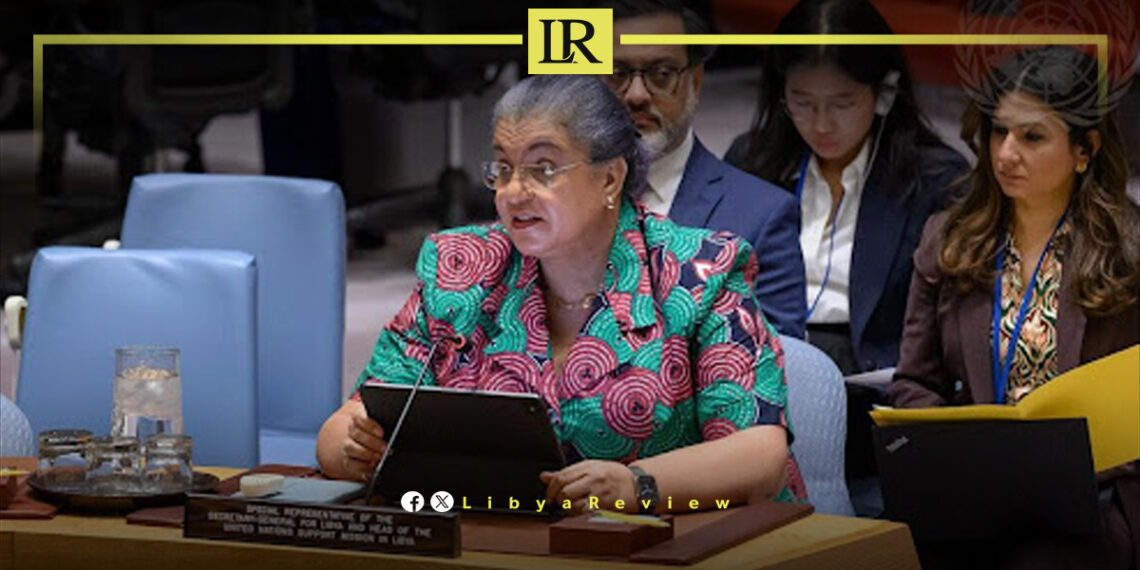UN Special Representative to Libya Hanna Tetteh is preparing to present her update to the UN Security Council, nearly 40 days after announcing a new political roadmap aimed at ending Libya’s prolonged transitional period.
However, four core challenges continue to undermine the plan’s implementation and cast doubt on its short-term viability.
Since unveiling the roadmap on August 21, Tetteh has held over 20 meetings with Libyan and international stakeholders. While she has consistently urged progress on a constitutional framework, legal reforms, and restructuring the High National Elections Commission (HNEC), no significant action has been taken.
Libyan political sources indicate that the UN mission’s most pressing concern is the fragile security environment in western Libya. Armed groups still maintain control over parts of Tripoli, and recent security agreements remain only partially implemented. The withdrawal of reserve forces and the reorganization of security units have yet to be completed.
Efforts by Presidential Council head Mohamed Al-Mnifi and interim Prime Minister Abdulhamid Dbaiba to enforce the Tripoli Security Agreement have stalled. The planned handover of security responsibilities to the Interior Ministry remains incomplete.
Additional obstacles include ongoing disputes over institutional authority, vague timelines in the UN plan, and insufficient funding for HNEC. The future of HNEC leadership remains undecided, with disagreements on whether to replace the full board or only fill vacant positions.
Tetteh’s proposal focuses on three pillars: a technically sound electoral framework, a unified national government, and an inclusive national dialogue to address political, economic, and security concerns.
Tetteh has emphasized that the roadmap will be implemented gradually, in a single coordinated package, beginning with restructuring HNEC and amending the legal framework—provided there is political will to move forward.


